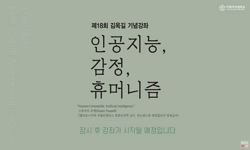This thesis has an aim to make the essence of humanism to which post-war novel points clear by reading Blaze again. To achieve the aim of this study, first, humanism manifested in Blaze was examined closely by the way of narratology. Approach to Blaze...
http://chineseinput.net/에서 pinyin(병음)방식으로 중국어를 변환할 수 있습니다.
변환된 중국어를 복사하여 사용하시면 됩니다.
- 中文 을 입력하시려면 zhongwen을 입력하시고 space를누르시면됩니다.
- 北京 을 입력하시려면 beijing을 입력하시고 space를 누르시면 됩니다.
부가정보
다국어 초록 (Multilingual Abstract)
In addition to it, it was clear that the recognition of the narration by the narrator who transmitted the story out of the world of the story was poor, too. The characters' recollection and discord of panorama descriptions make the credibility of Blaze weak.
In short, the fact that characters in this work slumps to one without recognition of reality and to the describer without recognition of description has something to do with the writer, Seonu Whi's recognition of reality. So humanism in Blaze can not be anticipated. It is because the heroic schematization of one sided anti-communism goes against humanism
This thesis has an aim to make the essence of humanism to which post-war novel points clear by reading Blaze again. To achieve the aim of this study, first, humanism manifested in Blaze was examined closely by the way of narratology. Approach to Blaze by the way of narratology made us recognize that the reciprocal actions between mankind and circumstances were lack in the story transmitted by the narrator. The logics of the black and white was schematized by dichotomy from the character. So the characters of the world in the story were not able to be tied and gone inside organically.
In addition to it, it was clear that the recognition of the narration by the narrator who transmitted the story out of the world of the story was poor, too. The characters' recollection and discord of panorama descriptions make the credibility of Blaze weak.
In short, the fact that characters in this work slumps to one without recognition of reality and to the describer without recognition of description has something to do with the writer, Seonu Whi's recognition of reality. So humanism in Blaze can not be anticipated. It is because the heroic schematization of one sided anti-communism goes against humanism
동일학술지(권/호) 다른 논문
-
- 현대문학이론학회
- 한명환
- 2002
- KCI등재후보
-
- 현대문학이론학회
- 유철상
- 2002
- KCI등재후보
-
1960년대말-70년대초 '시민문학론' 발의 및 '민족문학론'의 변주 양상
- 현대문학이론학회
- 한강희
- 2002
- KCI등재후보
-
- 현대문학이론학회
- 안혜련
- 2002
- KCI등재후보
분석정보
인용정보 인용지수 설명보기
학술지 이력
| 연월일 | 이력구분 | 이력상세 | 등재구분 |
|---|---|---|---|
| 2022 | 평가예정 | 재인증평가 신청대상 (재인증) | |
| 2019-01-01 | 평가 | 등재학술지 유지 (계속평가) |  |
| 2016-01-01 | 평가 | 등재학술지 유지 (계속평가) |  |
| 2012-01-01 | 평가 | 등재학술지 유지 (등재유지) |  |
| 2009-01-01 | 평가 | 등재학술지 선정 (등재후보2차) |  |
| 2008-01-01 | 평가 | 등재후보 1차 PASS (등재후보1차) |  |
| 2007-01-01 | 평가 | 등재후보 1차 FAIL (등재후보1차) |  |
| 2006-01-01 | 평가 | 등재후보학술지 유지 (등재후보2차) |  |
| 2005-01-01 | 평가 | 등재후보 1차 PASS (등재후보1차) |  |
| 2004-01-01 | 평가 | 등재후보학술지 유지 (등재후보1차) |  |
| 2002-01-01 | 평가 | 등재후보학술지 선정 (신규평가) |  |
학술지 인용정보
| 기준연도 | WOS-KCI 통합IF(2년) | KCIF(2년) | KCIF(3년) |
|---|---|---|---|
| 2016 | 0.54 | 0.54 | 0.54 |
| KCIF(4년) | KCIF(5년) | 중심성지수(3년) | 즉시성지수 |
| 0.51 | 0.5 | 0.879 | 0.19 |





 KISS
KISS



